Published: 12.05.2022
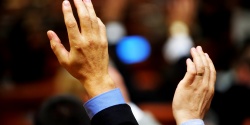
· During the upcoming World Health Assembly meeting, proposals for changes to the International Health Regulations (IHR) will be voted on.
· The proposed changes assume, inter alia, increasing WHO's expertise in global pandemic management.
· A postulate was also formulated to create a coordinator function at the state level, whose competences would be to direct the governmental and social approach to health issues.
· The implementation of the proposal could also lead to the use of censorship and restriction of freedom of expression.
· The event will take place on May 22-28 in Geneva.
One of the topics on the agenda will be the ready-made proposal for changes to the International Health Regulations presented by the United States. The initiative of the WHO working group, which has prepared a set of recommendations in the area of modification of the IHR regulations, will also probably be discussed, while according to the schedule they would be developed later in the year with the perspective of adoption next year.
If the project authored by the United States is approved, the so-called Compliance Committee (Article 53), i.e. a committee dealing with the study of the application of the provisions of the International Health Regulations, giving opinions on their application and providing support in this regard. The WHO would also be given greater initiative in responding to health threats (Articles 12, 13).
The committee would be composed of six members from each region, elected by the Member States for a four-year term, meeting three times a year. His tasks would include monitoring compliance with regulations and advising states in this regard, but he would not be competent to apply sanctions.
Another change (Article 12) would be to give the World Health Organization the power to issue a public health warning even in the event of failure to meet the criteria of a public health emergency of international importance. Art. 13 on the procedure for providing support to countries affected by health threats. Instead of the current mechanism of requesting assistance by states, WHO would propose support on its own initiative, while the offer of such cooperation could still be rejected by the Member State concerned.
An initiative with potentially far-reaching consequences is the draft report of the WHO working group on strengthening pandemic preparedness and response. In principle, the project is to be approved at the next meeting in order to start work on its recommendations, with the option of adoption in the next year.
The proposed assumptions stated, inter alia, that “the commitment to the multilateral system should be renewed, including strengthening the WHO as an impartial and independent international organization responsible for managing and coordinating pandemic preparedness and response. Therefore, political leadership is also needed to ensure adequate prioritization and funding to strengthen national, regional and global preparedness and response to a pandemic. ' This point is about strengthening the role of the WHO to have a steering and coordinating role in pandemic management. It is a fairly broadly formulated idea, so the range of possible concrete proposals based on this basis could be relatively wide.
It was also proposed to create the function of a coordinator at the state level, whose competences would be to direct the governmental and social approaches to health issues (whole-of-government and whole-of society approaches). It would be a kind of unification of the management system in individual countries, which could be treated as a step on the way of globalization.
In the context of the role of Non-State Actors, it called for cooperation with governments to fight disinformation. The key to this aspect is the interpretation of the concept of disinformation and the assessment of its use in specific cases. In recent years, the term has often been inappropriately invoked as a tool to combat medical opinions that deviate from the mainstream narrative. In practice, it is sometimes used for political and media struggle, including an unjustified attempt to censor inconvenient opponents.
“Undoubtedly, this year's World Health Assembly will be an important event. It is also taking place in the atmosphere of work on the so-called pandemic treaty, so we will certainly observe the development of events from the perspective of defending Polish interests and civil liberties, ”emphasizes Michał Pełka, an analyst at the Ordo Iuris Center for International Law.
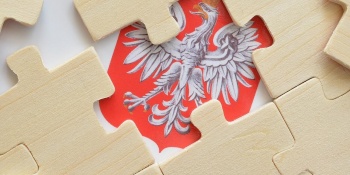
16.06.2025
Shortly after the end of the second round of Polish presidential elections, which took place on 1 June 2025, the International Observation Mission of the Organisation for Security and Cooperation in Europe (OSCE) issued a Statement of Preliminary Findings and Conclusions concerning the elections.
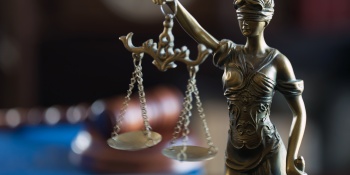
10.06.2025
According to the authors of the report published today, titled “Violations of the Principles of a Democratic State of Law and the Rule of Law by the Government Donald Tusk after December 13, 2023,” the authorities, under the leadership of Polish PM Donal
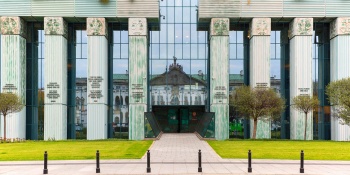
09.06.2025
Presidential elections, which have just taken place in Poland, were won by the candidate supported by the opposition. According to the law, the validity of the elections should be decided by the Extraordinary Review and Public Affairs Chamber of the Supreme Court. However, the government is questioning the competence of this chamber, which could be interpreted as an attempt to obstruct the transfer of power to the newly elected president.
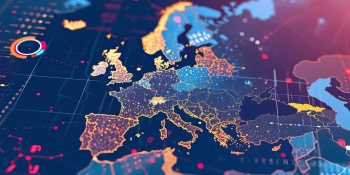
23.05.2025
We are currently engaging with think tanks and political parties across the continent to collaboratively develop a detailed counter-proposal to the centralist, anti-national, and anti-democratic vision of the European Union promoted by the European Parliament and President Macron.